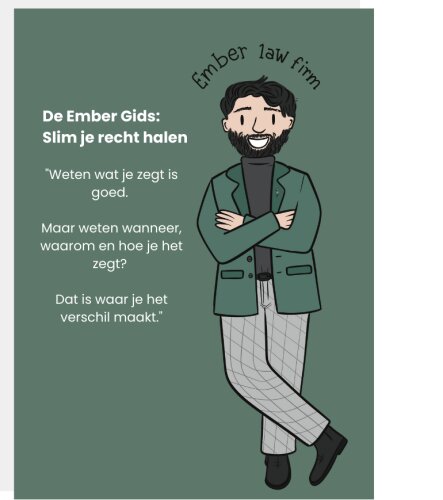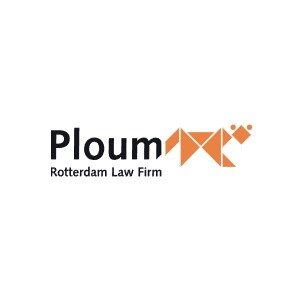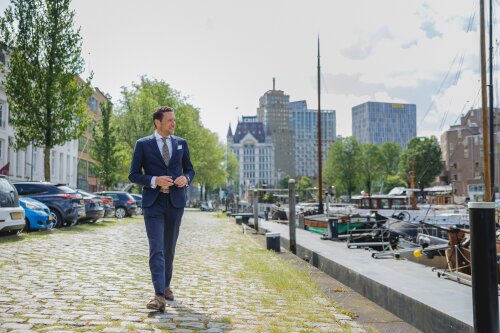Best Art & Cultural Property Law Lawyers in Rotterdam
Share your needs with us, get contacted by law firms.
Free. Takes 2 min.
List of the best lawyers in Rotterdam, Netherlands
About Art & Cultural Property Law in Rotterdam, Netherlands
Art & Cultural Property Law in Rotterdam, Netherlands, encompasses a wide range of legal frameworks focused on the protection, preservation, and regulation of art and cultural heritage. Given Rotterdam's cultural significance and dynamic art scene, legal practices in this field address issues related to the ownership and transfer of art pieces, cultural heritage protection, intellectual property rights, and restitution of cultural objects. The legal landscape is influenced by both national legislation and international treaties that the Netherlands is a part of.
Why You May Need a Lawyer
Understanding the complexities of Art & Cultural Property Law is crucial for anyone involved in the art sector. Individuals and organizations may require legal assistance in a variety of situations:
- Artists and collectors who need advice on intellectual property rights.
- Galleries and museums managing the acquisition and sale of artworks.
- Institutions or heirs involved in disputes related to the restitution of looted art.
- Travelers and importers dealing with the cross-border transportation of cultural goods.
- Preservationists working on projects involving protected cultural heritage sites.
Local Laws Overview
The Netherlands has robust protective mechanisms for its cultural heritage, influenced by both domestic law and international agreements. Key aspects include:
- The Dutch Heritage Act, which governs the protection, management, and financing of cultural heritage, including movable cultural property.
- The Restitution of Cultural Property Law, which ensures the return of cultural objects to rightful owners, particularly addressing art looted during WWII.
- EU regulations and directives that impact cultural property, maintaining uniform standards in cross-border art transactions.
- Intellectual property laws that apply to the creation, usage, and commercialization of artworks.
Frequently Asked Questions
What is considered cultural property under Dutch law?
Cultural property includes artworks, manuscripts, and artifacts deemed significant to the heritage of the Netherlands, protected under national and international law.
How do I know if an artwork is protected by cultural heritage laws?
Protected artworks are typically listed in national databases or registers; consulting with a lawyer can clarify the status of specific pieces.
What regulations apply to the trade of cultural goods?
Trade regulations are influenced by EU laws requiring provenance checks and ensuring that transactions respect cultural heritage protections.
Can foreign artworks be legally owned and displayed in Rotterdam?
Yes, but the ownership and display of foreign artworks must comply with import/export regulations and any applicable international agreements.
How can I resolve a dispute over the ownership of a cultural item?
Legal resolution may involve negotiation, mediation, or litigation, often requiring documentation of provenance and legal title.
What are the consequences of illegally exporting cultural property?
Illegal exportation can result in significant penalties, including fines and imprisonment, and the confiscation of the cultural item.
How does the Netherlands handle art restitution claims?
Restitution claims, particularly for WWII looted art, are handled by specialized committees that assess provenance and rightful ownership.
What protections exist for artists' intellectual property rights?
Artists are protected under copyright law, enabling them to control the use, reproduction, and distribution of their work.
Are there restrictions on altering historical buildings in Rotterdam?
Yes, changes to historical buildings are subject to regulations to preserve architectural integrity, requiring permits and careful planning.
What role do international treaties play in art & cultural property law?
International treaties, like the UNESCO Convention, influence Dutch law, promoting the protection, repatriation, and exchange of cultural properties.
Additional Resources
For additional information and support, consider these resources:
- The Dutch Restitutions Committee for cases of art restitution.
- The Netherlands Cultural Heritage Agency for regulations and guidelines.
- Rotterdam's local museums and art galleries for community-specific insights and network.
- Legal aid societies and art law specialists in Rotterdam focusing on this niche field.
Next Steps
If you require legal assistance in Art & Cultural Property Law, consider the following steps:
1. Identify the specific aspect of law you need help with, such as transaction issues, intellectual property, or restitution.
2. Compile all relevant documentation regarding the art or cultural property in question, including provenance and any previous legal agreements.
3. Consult with a lawyer specialized in Art & Cultural Property Law in Rotterdam to obtain tailored legal advice and address your concerns effectively.
Lawzana helps you find the best lawyers and law firms in Rotterdam through a curated and pre-screened list of qualified legal professionals. Our platform offers rankings and detailed profiles of attorneys and law firms, allowing you to compare based on practice areas, including Art & Cultural Property Law, experience, and client feedback.
Each profile includes a description of the firm's areas of practice, client reviews, team members and partners, year of establishment, spoken languages, office locations, contact information, social media presence, and any published articles or resources. Most firms on our platform speak English and are experienced in both local and international legal matters.
Get a quote from top-rated law firms in Rotterdam, Netherlands — quickly, securely, and without unnecessary hassle.
Disclaimer:
The information provided on this page is for general informational purposes only and does not constitute legal advice. While we strive to ensure the accuracy and relevance of the content, legal information may change over time, and interpretations of the law can vary. You should always consult with a qualified legal professional for advice specific to your situation.
We disclaim all liability for actions taken or not taken based on the content of this page. If you believe any information is incorrect or outdated, please contact us, and we will review and update it where appropriate.










